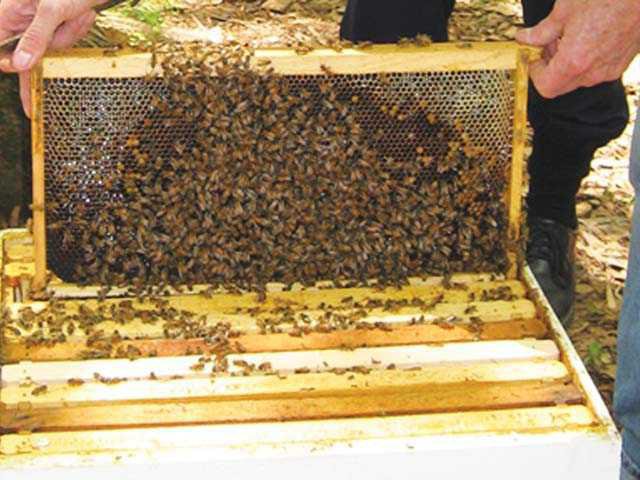For nearly half his life, Nicholas Weaver has kept bees as a hobby at his Forsyth County home.
After those dozen years or so, a notice recently appeared on his door stating he was in violation of county code for raising livestock in a residential district.
A former vice president of the Forsyth County Beekeepers Club, the world’s youngest certified Welsh honey judge and record holder for highest grade on the Georgia Master Beekeeper Exam, Weaver wasn’t going to give up on his bees easily and is challenging the decision.
He has worked his way through the county’s chain of command, starting with the code enforcement officer who said he only enforces, not interprets, the codes.
An employee of the county’s planning department said bees aren’t specifically addressed in the county’s unified development code, or UDC, table for allowed residential uses.
With no specific mention in the table, the administrative call went to Tom Brown, county director of planning and community development.
In reviewing the UDC, Brown said bees, as domesticated animals, fall under the definition of livestock, which is not allowed in residentially zoned areas.
“I felt there really wasn’t another way to take it,” Brown said. “Our definition of livestock talks about domesticated animals for profit or personal use.”
He said research online reinforced his interpretation of the code that bees are domesticated.
Weaver said he felt Brown did not fulfill his duty in the UDC to make judgment on whether this land use is allowed.
“He’s simply decided bees are livestock and are therefore not allowed,” Weaver said. “He has based his decision off of falsehood … Bees are not domesticated.”
Weaver contends Brown’s research did not use adequate sources to back up his decision, which will “mean essentially beekeeping is not allowed in any residential area in Forsyth County.”
Weaver contacted University of Georgia etymology professor Keith Delaplane for an outside opinion.
Delaplane’s written response reads: “Honey bees are, without equivocation, not domesticated. The honey bees managed by beekeepers inside hives, by every measure … are undistinguishable from honey bees that naturally nest, reproduce and pollinate in the wild.”
Weaver said he plans to have the ruling heard by the Forsyth County Zoning Board of Appeals, which will cost him about $250.
He also hopes to affect a UDC change to clarify what is and isn’t allowed in terms of beekeeping, “and to protect people who are currently keeping bees.”
To that end, his case has drawn interest from other county residents, who have launched petitions.
About 800 added their names to a list in local areas, and more than 600 have signed one online.
Suzanne Geddes, who runs the Cumming Harvest online market, started the Internet petition after hearing about the issue.
“Forsyth County has so many small family farms and they all rely on honeybees to pollinate their plants,” Geddes wrote in an e-mail. “If the county decides to not allow hives on residential property, over half of the beekeepers will have to move their hives. No bees equals no food.”
Weaver said he uses the wax and honey his bees produce, and the eight hives on his acre pollinate his personal vegetable garden, as well as those nearby.
“It helps [my neighbors.] The bees pollinate a lot of their vegetable gardens in the neighborhood,” he said. “That’s not just the immediate area, bees can forage for miles.”
Not everyone feels that way, since the initial notice that appeared on Weaver’s door followed a neighbor’s complaint, Brown said.
“When you get down to properties that size, it can be challenging,” he said. “What’s going on on one property always has a lot of spillover on what’s happening next door, and I think that’s how it became an issue at the county level.”
If commissioners choose to enact a code change, Brown said he could see some issues with allowing beekeeping without restriction.

